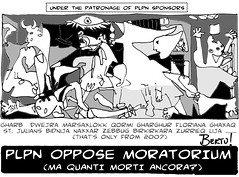It’s all happening in the PAC committee. The latest politicians to come under fire from the state’s evidence provider’s revlations are Austin Gatt and Manwel Mallia. It is good that the PAC committee is digging into the evidence in relation to “corruption scandals” but we must be forgiven if we remind all and sundry that the committee is in the end made up of members of our two political parties and that the sort of corruption that is being looked into is one that deals with dealing in influence – power broking of the kind that involves the sort of thinking that goes: “I’ll think of you today and you think of me tomorrow”.
Notwithstanding pre-electoral promises, our laws might at first glance still seem to be ill-equipped to deal with this kind of corruption. A very good reason is that the laws are drafted by our political parties who tend to create glaring exceptions whenever a law has to deal with them.
Take Manwel Mallia’s defence of “professional secrecy” – a quick look at the professional secrecy act will show that the obligation of professional secrecy can be lifted in the case of such crimes as money laundering but no such exception will apply to “corrupt practices”. In other words a lawyer who is confronted with a client who is knowingly laundering dirty money is divested of his obligation of secrecy but not one who comes to know of corrupt practices. Which does not explain whether or not Mallia used such information to his party’s advantage in any case (whether or not he was a minister does not matter).
In the run up to the last election we heard many times the party apparatchiks claim that their commercial arrangements are arranged on a barter system. Obviously columns such as this one that push the “PLPN” line of thinking are often discredited as though this were some conspiracy obsession but the fact of the matter is that this “barter” system admission was a very clear and open admission that parties are used to “trading their influence”. It is institutionalised corruption.
Those of a taghnalkoll persuasion might gleefully point their fingers at Austin Gatt’s reception of the €2,000 party donation but they would not do themselves any good if they ignore that such donations occur naturally across the whole party lines. The party “barter” system cannot vanish without the parties themselves vanishing along with it. That, my friends, is the unpalatable fact about the PLPN style of politics.
We saw how the loss of government influence strongly devalued PN’s “trading” power in the barter system – turning it into a bankrupt party overnight.
We also saw how the PL pie-grabbing exercises mean that the core party structure will survive another round simply by shifting its costs (and incomes) to government resources.
In the meantime the general public will act as indignant citizens and depending on which side your bread is buttered you will snort and denounce the “hnizrijiet” committed by the other side. We said it before and will say it again… you reap what you sow… and there seems to be no light at the end of this tunnel.
Below the gallery is a selection of old posts by J’accuse dealing with this barter and corruption issue.
On the Infamous JS List
Return of the JS List (August 18 2010)
(Evarist Bartolo) is insinuating that huge companies in Tokyo and Copenhagen had more than a hand in the assignation of the BWSC contract (remember that hot potatoe). The name dropping is not on the scale of ENRON style scandal but by Maltese standards it is big. There is an alleged web of intertwined interests that lead to linking the tenderor and the tenderee on the energy contract. There’s more. Bartolo does not shy back from implying that KPMG auditor to many of the parties involved served as a bridge between all the parties and government. And all this to lead to where? it’s not clear Who, What, When, Why or How but the conclusion is that:
“The PN has a system of fundraising where companies win government contracts and donate money to the PN. They are all part of the PN’s JS list,” Bartolo said, referring to the so called list named after former PN treasurer Joe Stellini.
Which is one hell of a whopper. From DimechGate to JS-Gate. Only, as I have been lamenting all the while, we need more tangible proof. We need cases before the Public Services Commission. It’s not a problem that the allegations surface on a newspaper – the newspaper is only attempting to perform its duty as part of the fourth estate – but there must be a follow up using the full strength of our democratic institutions. In a way there was never a shadow of doubt that contractors in various markets benefited from their contacts with the PN and that they performed services or investments in return. We just needed someone to get talking about them as a first step to something more direct being done about it. We do not have a magistratura in Malta as they do in Italy so do not expect a flurry of avvisi di garanzia very soon.
On Party Donations
From Business as Usual (April 25 2011)
Parties ask everyone for donations
Thus spake contractor Nazzareno Vassallo while celebrating his having survived 65 years in the dog-eat-dog world of Maltese building contractors. Were we surprised? No. Of course not. Would we wonder why his “well-known Nationalist sympathies have often worked against him when bidding for a contract.” Well yes. What does that mean exactly? Why does he bother funding both parties if his sympathies can work against him? How can he get away with frankly admitting that contracts ARE awarded on the basis of political considerations? Nazzareno is not the first to have claimed the “I oil both parties” approach. Sandro Chetcuti famously claimed it was important to have a pocket for every party (thank Mercury we only have two that count in the tendering business aye) and Vince “Holier than Thou” Farrugia has swung around the world of parties with better tempo than a grandfather clock’s pendulum.
(…)
Related:
Herrera alleges “rampant nepotism in financial sector” : one wonders if he’ll still be singing the same tune once it’s his party’s turn to milk the cow.
On Party Funding
From Funding Fundamentals (5 February 2013)
Idiots – that’s you the voters – are supposed to be carefully measuring the different proofs of liaisons that each party has with big business and throwing onto their homemade scales the various calculations as to who spent how much and where the money has come. Idiots (that’s still you) will then be expected to vote for the lesser evil. That, I guess (but I’m no idiot myself), will be the one with less ties to business and less I.O.U.’s hanging around in the pockets of various contractors and other men who can practically foot a blank cheque in times of need.
You do have to be an idiot though not to see past the protestations of both parties. On the one hand you have the ridiculous nationalist party “barter” concept. You see, the PN barters with companies like MFCC and in return for the use of their tents it gives them…. erm… See I’m stuck there. What the hell could the PN be offering to barter? It’s not like air time on its debt-ridden stations is free? Allocating a million euros of air time (in exchange for a tent) would mean perforce that that air time is lost from other who might have actually paid for the service. Cardona also presented Beppe with a court case – Europrint vs MediaLink. Now that’s sweet. MediaLink owes Europrint half a million. Where will they get that from?
Labour on the other hand also have a hunch that we are all idiots. Their campaign CANNOT have been funded by the telethons. Igloos don’t grow on trees Chris and you can have many many volunteers with ideas that you think are great but you cannot barter ideas for material in much the same way that Borg Olivier is not bartering ideas for tents. And while we are at it enough with this bullshit about the parties publishing their accounts. First of all Labour walked out of the committee for democratic reform (Select Committee on the Strengthening of Democracy) that not only put an end to the hope of electoral reform but also to any issue on party financing.
see also Grabbing the Iced Buns








